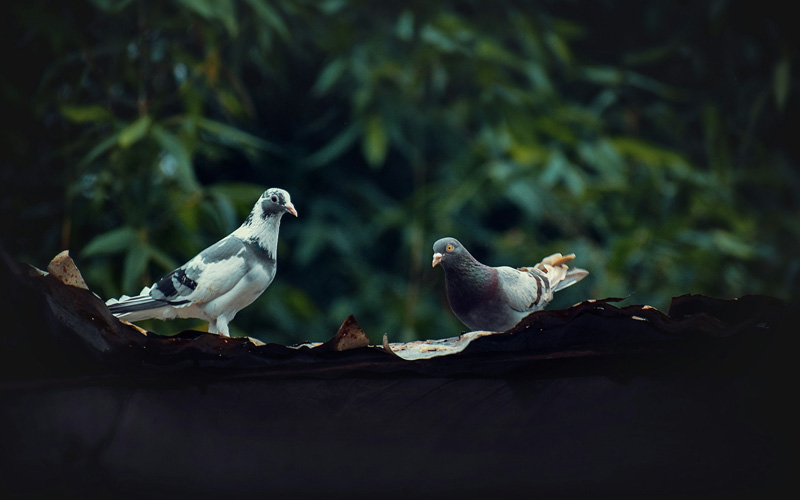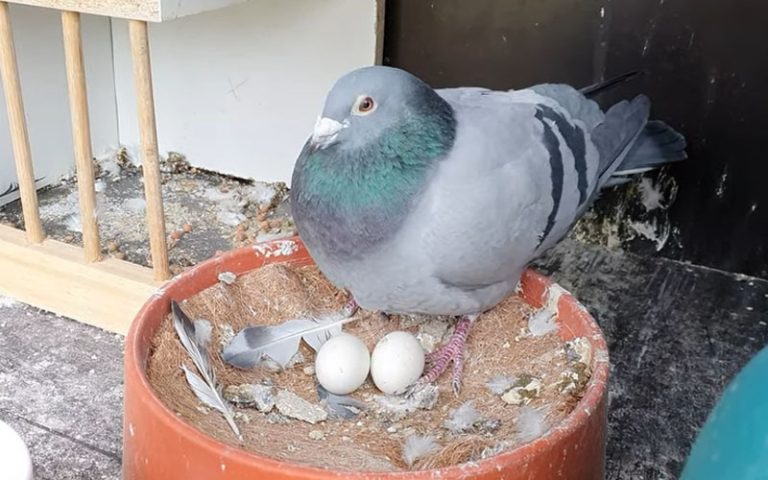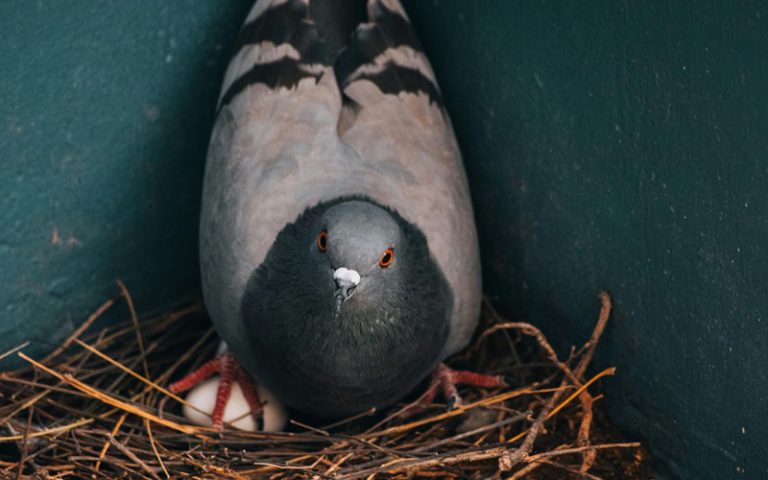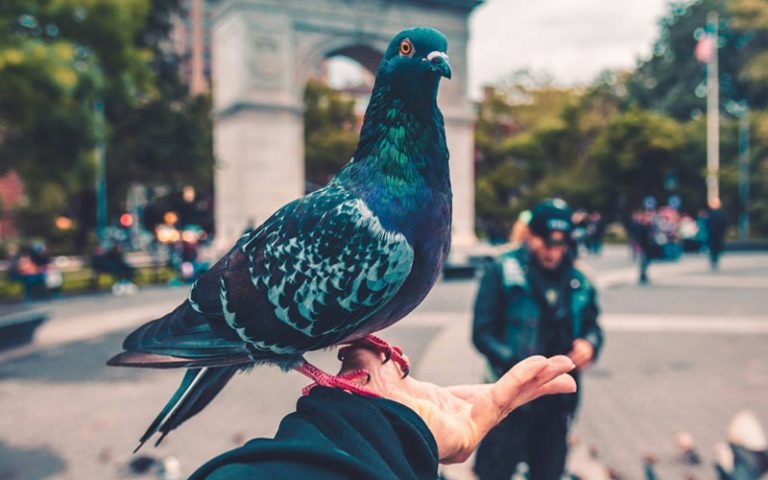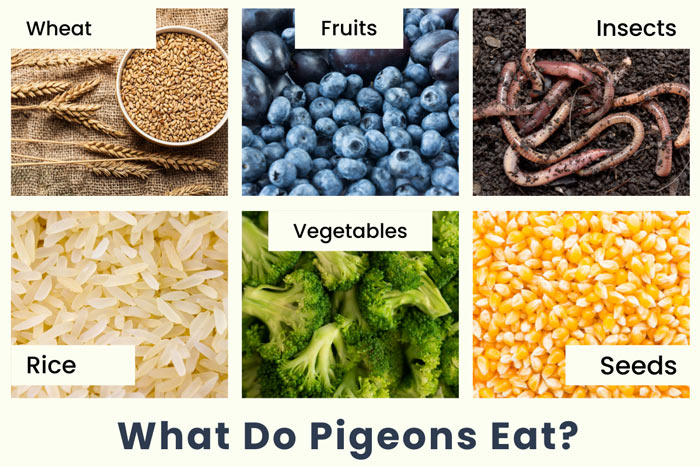What Are Pigeons Good For? (9 Purposes)
Pigeons are good for various reasons. They help control insect populations by consuming bugs. Additionally, their droppings serve as fertilizer, aiding plant growth. Pigeons also play a role in pollination by transferring pollen between plants. Furthermore, they are valued as pets and provide enjoyment to bird enthusiasts. Overall, pigeons contribute positively to ecosystems and human enjoyment similar.
9 Purposes What Are Pigeons Good for?
Pigeons, often regarded as common city birds, have several purposes that may not always be obvious at first glance. Here are 9 purposes that highlight the various roles pigeons play in ecosystems, human culture, and scientific research:
1. Ecosystem Maintenance
Pigeons serve as important members of urban ecosystems by helping to control insect populations. They consume various insects, including flies, mosquitoes, and beetles, which can help regulate pest populations in cities and other urban environments.
2. Seed Dispersal
Pigeons play a role in seed dispersal by eating seeds from various plants and then excreting them in different locations. This process helps plant propagation and contributes to urban green spaces’ diversity and resilience.
3. Bioindicators of Pollution
Pigeons are often used as bioindicators to monitor environmental pollution in urban areas. Due to their widespread presence and feeding habits, pigeons can accumulate pollutants from their surroundings, providing valuable insights into the levels of environmental contaminants such as heavy metals and airborne pollutants.
4. Research Subjects
Pigeons have been extensively studied in scientific research, particularly in the fields of behavior, cognition, and neuroscience. Their relatively simple brain structure and behavioral repertoire make them valuable subjects for studying learning, memory, and decision-making processes, providing insights into human and animal behavior.
5. Symbolism and Cultural Significance
Pigeons have deep cultural significance in many societies around the world. From ancient times to the present day, they have been revered as symbols of peace, love, and freedom in various cultures. Pigeons are also associated with communication, often being used as messengers in historical contexts.
6. Homing Instincts
Pigeons possess remarkable homing instincts and navigational abilities, making them valuable for research into animal navigation and orientation. Their ability to find their way home over long distances has fascinated scientists for centuries and has practical applications in areas such as homing pigeon racing and animal tracking studies.
7. Therapeutic Role
Pigeons are increasingly being recognized for their therapeutic potential in animal-assisted therapy programs. Interacting with pigeons can have a calming and therapeutic effect on individuals dealing with stress, anxiety, and other mental health issues, leading to improved well-being and emotional regulation.
8. Art and Entertainment
Pigeons have inspired artists, writers, and filmmakers for centuries, appearing in literature, paintings, and films as symbols of beauty, freedom, and urban life. Pigeon racing, a popular sport in many parts of the world, showcases the athleticism and competitive spirit of these birds, attracting enthusiasts and spectators alike.
9. Fertilizer Production
Pigeon droppings, also known as guano, are rich in nitrogen and other nutrients, making them valuable as organic fertilizer. Historically, pigeon guano has been harvested and used as a natural fertilizer in agriculture, contributing to soil fertility and crop productivity.
Benefits of Pigeons / Why Are Pigeons Important?
Pigeons, often overlooked or even considered pests by some, actually offer several benefits to both the environment and humans. Here are some of the advantages of pigeons:
- Pollination: Pigeons play a role in pollination by spreading pollen from plant to plant as they forage for food. While they may not be as efficient as bees or butterflies, they still contribute to the pollination process.
- Seed dispersal: Pigeons help disperse seeds by eating fruits and seeds and then excreting them in different locations. This aids in the propagation and diversity of plant species.
- Indicator species: Pigeons can serve as indicators of environmental health. Changes in their population size or behavior can signal shifts in the ecosystem, providing valuable information for conservation efforts.
- Research: Pigeons have been extensively studied in scientific research, particularly in the fields of behavior, cognition, and neuroscience. Their intelligence and ability to navigate make them valuable subjects for the perception of various aspects of animal behavior and cognition.
- Pest control: Surprisingly, pigeons can help control certain pests. They are known to eat insects such as ants, beetles, and even small rodents, helping to keep their populations in check.
- Companionship: Pigeons have been domesticated for thousands of years and are kept as pets by many people around the world. They can provide companionship and even have therapeutic benefits for some individuals.
- Symbolism: Pigeons have cultural and symbolic significance in various societies. They are often associated with peace, love, and freedom, and are used as symbols in art, literature, and religious practices.
- Fertilizer: Pigeon droppings, or guano, are rich in nitrogen and other nutrients, making them a valuable natural fertilizer. Historically, guano has been harvested and used in agriculture to improve soil fertility.
FAQ
You can have a pigeon as a pet. Pigeons make great companions and can be trained to return home after flying. They require proper shelter, food, and care like any other pet. Make sure to check local regulations regarding ownership before getting one. Pigeons can be affectionate and enjoyable pets for those willing to provide proper care.
Pigeons can be trained similarly to other pets. With patience and consistency, they can learn behaviors like flying to specific locations, returning home, and even performing tricks. Using rewards like food encourages desired actions. Training pigeons requires understanding their natural behaviors and using positive reinforcement techniques to teach them new skills.
Pigeons are not inherently lucky or unlucky. Superstitions about them vary widely across cultures. Some people believe seeing a pigeon is a sign of good luck, while others think it’s just a common bird. In reality, luck is subjective and not determined by the presence of pigeons.

